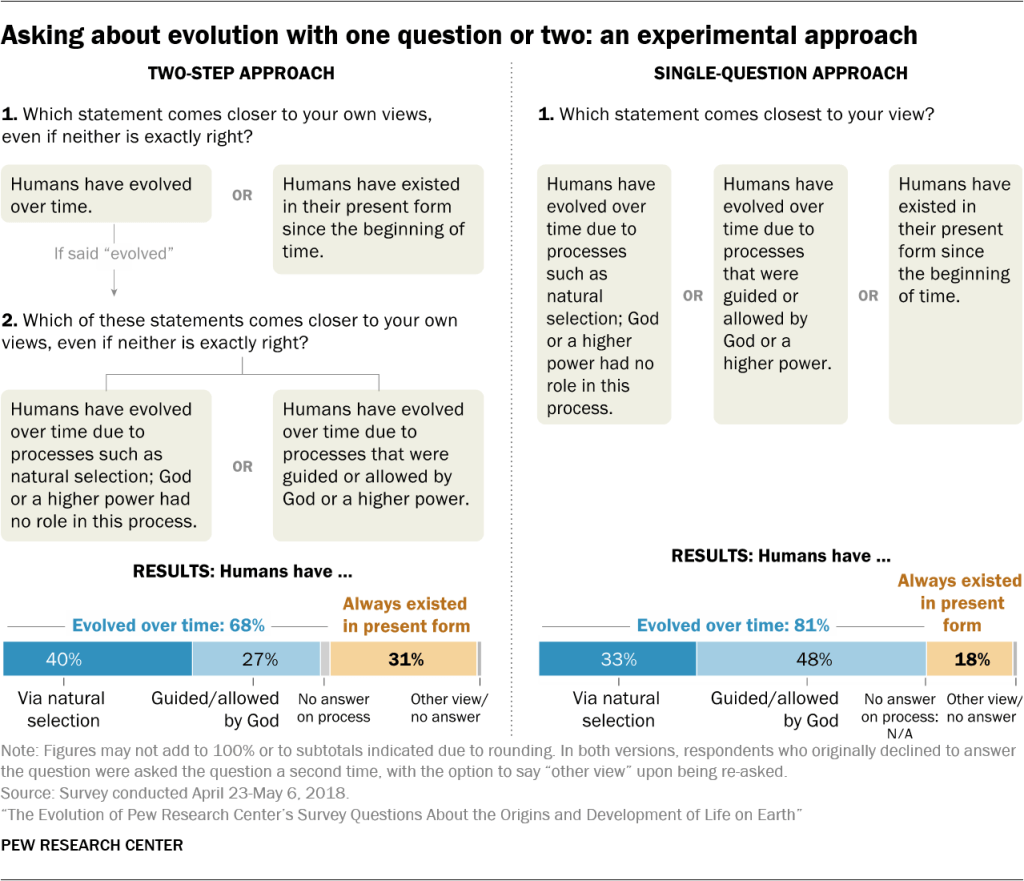When it comes to learning, asking questions is an important component of the process. Asking questions is so important that how questions are asked can impact what you end up learning about something. When researching things like social trends and public opinion, being mindful of how questions are asked is critical to gathering good data. If you don't ask the right questions, you'll end up with data that doesn't accurately represent the population you are surveying. When it comes to asking about religious topics, how things are framed can become especially important.
There's an interesting case in point for this when it comes to asking about acceptance of biological evolution. All to often the discussion of the topic is oversimplified into black-and-white "creationist" and "evolutionist" categories. "Theistic evolution," however, is also a thing. When people are asked about creation and evolution in a way that enables them to immediately express their thoughts about the role of god(s) in this process, responses shift pretty dramatically:

From: Exploring Different Ways of Asking About Evolution
This difference is more pronounced among certain demographics than others, and you can read about that here (How highly religious Americans view evolution depends on how they’re asked about it). The short of it is if we start by asking "did humans evolve over time (evolutionism)" versus "humans have exited in their present form since the beginning of time (creationism)," we will overestimate the number of creationists and underestimate the number of theistic evolutionists.
Have you noticed you might respond differently when asked about creation and evolution in different ways? What other possible improvements could be made to asking about this topic for research purposes?
There's an interesting case in point for this when it comes to asking about acceptance of biological evolution. All to often the discussion of the topic is oversimplified into black-and-white "creationist" and "evolutionist" categories. "Theistic evolution," however, is also a thing. When people are asked about creation and evolution in a way that enables them to immediately express their thoughts about the role of god(s) in this process, responses shift pretty dramatically:

From: Exploring Different Ways of Asking About Evolution
This difference is more pronounced among certain demographics than others, and you can read about that here (How highly religious Americans view evolution depends on how they’re asked about it). The short of it is if we start by asking "did humans evolve over time (evolutionism)" versus "humans have exited in their present form since the beginning of time (creationism)," we will overestimate the number of creationists and underestimate the number of theistic evolutionists.
Have you noticed you might respond differently when asked about creation and evolution in different ways? What other possible improvements could be made to asking about this topic for research purposes?
